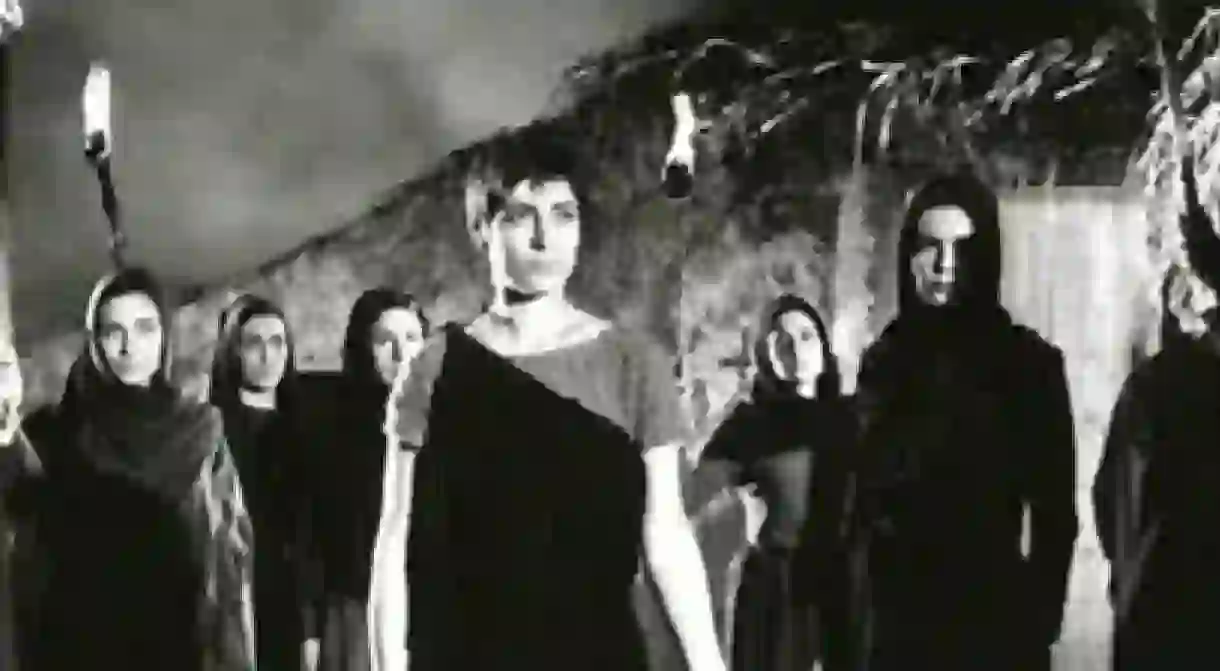Remembering the Greek-Cypriot Master Michael Cacoyannis

Michael Cacoyannis was one of the most prominent Greek–Cypriot directors of the 20th century and a vital ambassador for Cypriot culture and society and the classical Greek theatre that he adored. His neglected classics deserve to be resurrected.
Michael Cacoyannis was born Michalis Kakogiannis on the 11th June 1922, in Limassol, Cyprus. He was born into an affluent and respected middle-class family and educated in an exclusive Greek Orthodox school, where he first fell in love with theatre and literature. His idolisation of the tomes of myth, comedy and tragedy would mould his life, career, and creativity in ways he could not yet imagine.
In 1939, Cacaoyannis was sent by his father to London to follow a predetermined path into the legal profession. Eventually turning down law, he could not relinquish his passion for the arts and he decided to study acting at the Central School of Speech and Drama in London, as well as directing at the Old Vic School.
During World War II, Cacoyannis found work producing cultural Greek language programmes for the BBC World Service. Under the alias Michael Yannis, he went onto enjoy fame as a theatre actor in the 1940s, his most notable role being the lead in an adaptation of Albert Camus’ Caligula. Eventually feeling his talents were better suited to directing and failing to break into the British film industry, Cacoyannis immigrated to Athens in 1952.
His first feature film Windfall in Athens was released in 1954. This fantastical tale depicted a daydreaming young saleswoman (Elli Lambeti), who loses a winning lottery ticket and discovers romance in her quest to retrieve it. It was nominated for the Golden Palm at the Cannes Film Festival and Cacoyannis continued to charm audiences throughout the 1950s, creating wonderful Greek vignettes such as Stella (1955), The Girl in Black (1956) and A Matter of Dignity (1957). Cacoyannis’ first forays into directing were engaging attempts to realistically capture the dynamics of contemporary Greek society, and garnered him a following in the European art-house scene.
While Cacoyannis’s skill behind the camera was obvious, he reached new heights with his most recognised and internationally lauded success, Zorba the Greek (1964). Based on the novel of the same name by the celebrated Greek writer and philosopher, Nikos Kazantzakis, Cacoyannis directed, produced and wrote the screenplay. Cacoyannis managed to put together an A-List cast featuring Alan Bates, Lila Kedrova and Irene Papas, but it was Anthony Quinn who was the true star. Quinn gives an indelible performance in the role of a humble peasant who teaches an up-tight English intellectual the meaning of joie de vivre. Marking Cacoyannis’ arrival into the mainstream, Zorba the Greek was nominated for seven Oscars including Best Picture and Best Director and took home the awards for Best Supporting Actress (Lila Kedrova), Art Direction, and Cinematography.
Cacoyannis was still a theatre lover, and following his success with Zorba, he directed film adaptations of the Euripides Trilogy with his own Electra (1962), The Trojan Women (1971) and Iphigenia (1977). This trilogy of Greek tragedies saw Cacoyannis at his most creative.
One of Cacoyannis’ most significant works was Atillas 74: The Rape of Cyprus (1975). A return to his Cypriot roots, the documentary chronicles the real life tragedy of the 1974 Turkish invasion of Cyprus. Recording interviews with the conflict’s key political players, victims and refugees, Cacoyannis’ film attempted to bring the catastrophe and persecution to a wider international audience. An outspoken activist, it was Cacoyannis’ social conscience that led him to choose voluntary exile during Greece’s six year military junta in 1967.
After 1977, Cacoyannis faded into relative obscurity. The director’s swansong came in the form of The Cherry Orchard (1999). Although far from his best work, the retelling of Anton Chekov’s Gloomy tale on the floundering status of a Russian aristocratic family is nevertheless an emotive one. Cacoyannis’ passed away in June 2011; a champion of performing arts, his monumental forays into film deserve to be remembered as an expressive extension of his personality in which his adoration for his subjects can be felt onscreen.,













